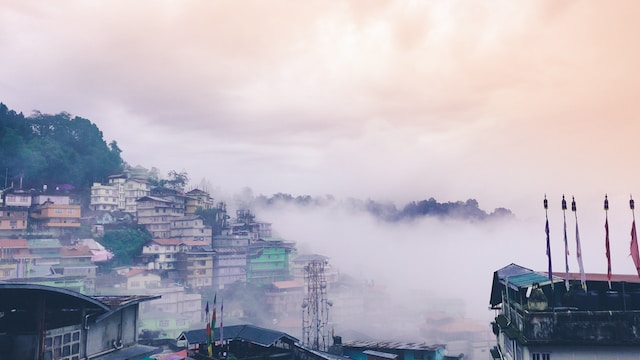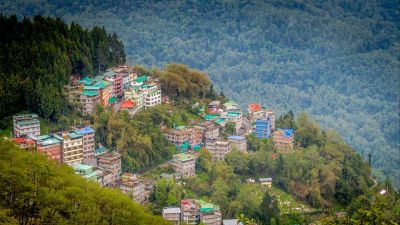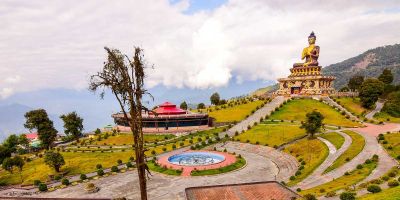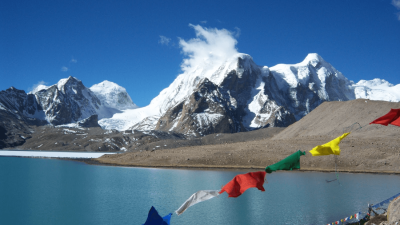Battling Altitude Sickness in Darjeeling: A Comprehensive Guide
Altitude sickness, also known as acute mountain sickness (AMS), is a common condition that can affect travelers who ascend to high altitudes too quickly. This condition is mainly caused by the lack of oxygen at higher elevations, and if not treated properly, it can lead to serious health problems. One of the popular destinations where altitude sickness is a concern is Darjeeling, a beautiful hill station in the Indian state of West Bengal.
Understanding Altitude Sickness
Before we dive into the tips on battling altitude sickness in Darjeeling, let's first understand what altitude sickness is all about. When you ascend to higher altitudes, the air pressure decreases, which means there is less oxygen to breathe in. This can lead to various symptoms ranging from mild to severe, such as:
- Headaches
- Nausea and vomiting
- Dizziness
- Shortness of breath
- Fatigue and weakness
- Loss of appetite
- Difficulty sleeping
If you experience any of these symptoms after reaching higher altitudes, it's important not to ignore them. Altitude sickness can worsen rapidly and may lead to life-threatening conditions like high altitude pulmonary edema (HAPE) or high altitude cerebral edema (HACE).
Tips for Battling Altitude Sickness in Darjeeling
1. Acclimatize Gradually
The key to avoiding altitude sickness is to acclimatize slowly. Darjeeling is located at an altitude of approximately 6,700 feet (2,042 meters), which can be a significant change for those who are not accustomed to high altitudes. It is advisable to spend at least a couple of days in a lower-altitude area nearby, such as Siliguri or Kurseong, before heading to Darjeeling. This allows your body to adjust to the higher altitude gradually.
2. Stay Hydrated
Staying hydrated is crucial in combating altitude sickness. Drink plenty of fluids, especially water, throughout your stay in Darjeeling. Avoid excessive consumption of alcohol and caffeine as they can dehydrate your body and worsen altitude sickness symptoms.
3. Eat Light and Nutritious Meals
While exploring the local cuisine in Darjeeling, opt for light and nutritious meals. Avoid heavy and greasy foods that can make you feel bloated and uncomfortable. Include foods rich in carbohydrates and proteins to provide your body with the necessary energy.
4. Take it Easy
When you first arrive in Darjeeling, take it easy and give your body time to adjust. Avoid strenuous activities and allow yourself to rest. Overexertion can increase the risk of altitude sickness. Take short walks and gradually increase your physical activity as your body adapts to the altitude.
5. Medications for Altitude Sickness
If you are prone to altitude sickness or have had previous experiences with it, it might be helpful to consult a healthcare professional before your trip. They can prescribe medications such as acetazolamide (Diamox) that can aid in acclimatization and alleviate symptoms. However, it is important to note that these medications should only be taken under medical supervision.
6. Stay Warm
At higher altitudes, the temperature can drop significantly, especially during the night and early mornings. It is essential to layer up and keep yourself warm to prevent cold-related illnesses like hypothermia. Carry a good-quality jacket, gloves, hat, and thermals to stay cozy during your stay in Darjeeling.
7. Listen to Your Body
Lastly, always listen to your body. If you start experiencing severe symptoms of altitude sickness, it's important to descend to a lower altitude immediately. Ignoring the warning signs can lead to life-threatening conditions. Be aware of your limits and prioritize your health and safety.
Conclusion
Altitude sickness is a genuine concern when traveling to higher altitudes like Darjeeling. By following these tips for battling altitude sickness, you can minimize the risks and ensure a safe and enjoyable trip. Remember, acclimatization, hydration, and listening to your body are the keys to combating altitude sickness. So plan your trip wisely, take necessary precautions, and embark on an unforgettable journey to the breathtaking hills of Darjeeling!
Don't forget to share this post with your fellow travelers to help them battle altitude sickness in Darjeeling!
Disclaimer : The information provided in this blog is for general informational purposes only. While we strive to keep the content accurate and updated, TravelSetu assumes no liability for errors or omissions. If you believe any part of this blog infringes your rights or causes concern, please notify us immediately at info[at]travelsetu[dot]com so that appropriate action can be taken.




















